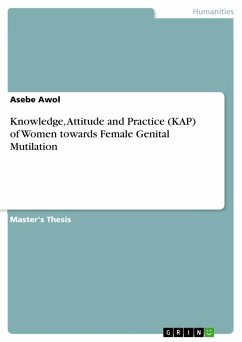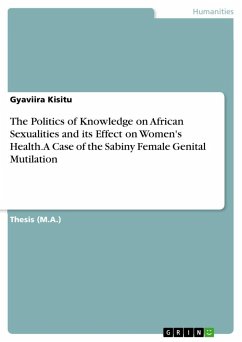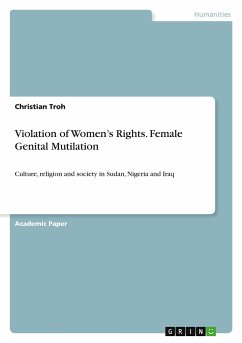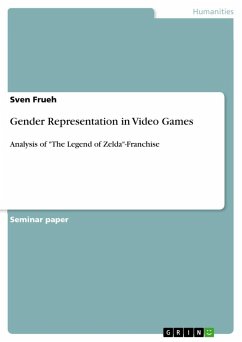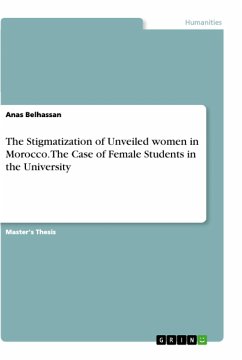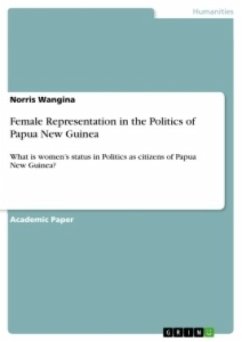Master's Thesis from the year 2017 in the subject Gender Studies, Hawassa University, language: English, abstract: Female Genital Mutilation (FGM) is recognized internationally as a violation of human rights of girls and women constituting an extreme form of gender discrimination with documented health consequences. The aim of this study was to assess knowledge, attitude and practice of women towards FGM practice. A community based cross-sectional study design was applied. Both quantitative and qualitative were employed. A total of 278 women at reproductive age (15-49) were sampled for the study from six randomly selected kebeles of Angacha woreda. The survey data was analyzed by SPSS soft ware version 20. Descriptive statistics such as mean, percentage and frequency were used for analyzing data. Binary Logistic Regression Model was used to analyze determinant Associated Factors regarding FGM. In addition qualitative data were analyzed thematically and the result was presented in narration. The result showed that 55.4% of women had good knowledge about FGM practice however 44.6% had poor knowledge. The majority of the women (50.4%) had negative attitude while 49.6% of them had positive attitude towards FGM practice. Tradition and fear of marriage were the major reasons for the continuation of this practice. From study participants 92.4%of responded that FGM was being practiced in their community and 77.7% of participants were undergone themselves. This study revealed that 79.5% of women were encountered physical health problems related to FGM and 59.7% of women were encountered psychological and sexual problems related to FGM. Bivariate and Multivariate analyses were carried out to identify determinant factors of practice. Age, family income, knowledge and attitude were significantly associated factors for FGM practice. [...]
Hinweis: Dieser Artikel kann nur an eine deutsche Lieferadresse ausgeliefert werden.
Hinweis: Dieser Artikel kann nur an eine deutsche Lieferadresse ausgeliefert werden.

